LG 27 in. Black Steel WashTower Laundry Center with 4.5 cu. ft. Front Load Washer and 7.4 cu. ft. Gas Dryer
Ultra Large Capacity 4.5 cu.ft. Washer and 7.4 cu.ft. Dryer. Single Unit WashTower Design. Built-In Intelligence – AI Fabric Sensors/Smart Learner.
Full-size and fully featured, with the washer on the bottom and dryer on top, the sleek single unit LG WashTower takes up half the space, giving you room to add a sink, a folding table or whatever you like. But unlike conventional stacked pairs, LG’s exclusive Center Control panel is perfectly positioned with both washer and dryer controls at just the right height. Built-in intelligence makes laundry less of a chore by taking out the guesswork, while top-of-the-line innovations put advanced cleaning power within reach.
- Say never again to never-ending piles of laundry-ultra-large capacity fits more clothes in every load and helps you power through laundry day in less time; with 4.5 cu. ft. in the washer and 7.4 cu. ft. in the dryer, you can fit from big loads of towels or jeans to a king-size comforter and more in a single load, for big time savings every week
- Redefine your space and reinvent how you do laundry with room to add a sink, a folding table or just organized storage-all with a sleek, streamlined look; only LG WashTower has the convenient center control panel that’s perfectly positioned with both washer and dryer controls at just the right height; typical stacked washers and dryers place dryer controls at the very top, making them hard to see and reach without using a step stool every time
- Forget about endless sorting or toggling through cycles-built-in sensors use AI technology to detect fabric texture and load size, then automatically select the right wash/dry motions, temperatures and more for advanced fabric care; activate smart learner in the ThinQ app, and WashTower will remember your preferred settings, from wash temp to spin speed to dry level – so you don’t have to; with smart pairing, the washer can even tell the dryer to select a compatible drying cycle, making it the ultimate laundry hack
- From ultra-large capacity to top-of-the-line innovations, the LG WashTower delivers the advanced cleaning performance you need; TurboWash360° powers through larger loads in less time, thanks to five jets with variable sprays that deliver a complete clean in under 30 minutes; the Allergiene wash cycle goes beyond everyday cleaning, using the power of steam to remove common household allergens in fabrics by more than 95%; do more than dry-TurboSteam technology in the dryer refreshes clothes in between washes as well as children’s toys, decorative pillows and more
- Reduce common household allergens in fabrics by more than 95%. certified asthma and allergy friendly by the Asthma and Allergy Foundation of America (AAFA)-LG washers are the first to earn this distinction; breathe easier with the Allergiene cycle that uses the gentle power of steam to remove pet dander and dust from bedding, baby clothes and more; a proven tool for creating a healthier home perfect for the more than 65 million Americans living with asthma and allergies
- Use the ThinQ app to start the laundry while you’re out shopping, check remaining cycle time or get notifications on your smartphone; go hands-free – select features work with Alexa and the Google Assistant; never run out of detergent and dryer sheets again – Amazon Dash Replenishment Service tracks usage and automatically delivers your favorite detergent and dryer sheets right to your door; proactive customer care offers preventative maintenance tips and alerts and expedited repairs, for enhanced satisfaction plus improved product performance
- LG front load washers and dryers are the first to use tempered glass doors for a sleek, stylish look that resists shock and scratches; chrome rims and matching control knobs complement the doors and enhance the premium feel
- Backed by a 10-year limited warranty, the LG Direct Drive Motor delivers peace of mind with every load; fewer moving parts means less noise and vibration, greater stability and durable performance you can depend on for years to come
- High efficiency washer uses far less water and energy than a conventional washer for savings that add up with each load; get additional savings with load-sensing technology that adjusts water levels and wash times or by adding the ColdWash option to almost any cycle; for drying, efficient sensor drying and low-heat settings save energy and money without sacrificing performance
- FlowSense duct clogging and lint filter indicators let you know when your ducts and filter need cleaning to avoid lint buildup, improve the dryer’s performance for greater efficiency and lower utility bills and help give you safer, worry-free operation with fewer service calls
- Unlike tubs made from porcelain or plastic, the LG NeveRust stainless steel tubs avoid the chips and nicks that can snag fabrics and ruin clothing; durable surface actually gets smoother over time and keeps your washer and dryer looking like new, even after years of use
- With the LG TubClean system, you don’t have to worry about mold, mildew or musty odors; simply select the TubClean cycle, add liquid bleach or other cleaner and let the washer do the work to thoroughly clean and dry the tub, door and gaskets; run it every month or so to keep your washer and your laundry clean and fresh
- Noisy, out-of-balance loads can disrupt your laundry routine and your day; LG helps you wash in peace with the TrueBalance anti-vibration system that keeps even big loads in balance to reduce washer noise and vibration; a must-have for main-floor or second-floor laundry rooms
- Run the washer or dryer whenever you want, without interrupting naptime or your favorite show; the LG WashTower is designed for quiet operation, from the motor to the cabinet to individual components
- When you hate wrinkles but can’t be there to remove clothes as soon as they’re dry, just select the wrinkle care option before hitting start; the dryer will periodically tumble the load for up to 3 hours after the cycle is done or until the door is opened to help keep wrinkles at bay
- Let’s face it: sometimes, you just don’t have time to wait for a standard wash cycle; when your’re in a rush, LG’s SpeedWash cycle gets small lightly soiled loads refreshed in just 15 minutes
- Installation is not available in all locations. See store for details.
Additional information
| Capacity - Washer (cu. ft.) | 4.5 |
|---|---|
| Depth With Door Open 90 Degrees (In) | 55 |
| Door Opening Height x Width (In.) | 16.06 x 16.06 |
| Dryer Door Opening Height x Width (In.) | 16.06 x 16.06 |
| Product Depth x Height x Width (in.) | 30.38 x 74.38 x 27 |
| Certifications and Listings | Energy Star,UL Listed |
| Manufacturer Warranty | Limited Warranty: 1 Year Parts and Labor, 10 Direct Drive Motor, Washer 3 Years Drum and 10 Years Dryer |
27 may refer to:
- 27 (number), the natural number following 26 and preceding 28
- one of the years 27 BC, AD 27, 1927, or 2027
4 (four) is a number, numeral and digit. It is the natural number following 3 and preceding 5. It is a square number, the smallest semiprime and composite number, and is considered unlucky in many East Asian cultures.
5 (five) is a number, numeral and digit. It is the natural number, and cardinal number, following 4 and preceding 6, and is a prime number.
Humans, and many other animals, have 5 digits on their limbs.
7 (seven) is the natural number following 6 and preceding 8. It is the only prime number preceding a cube.
As an early prime number in the series of positive integers, the number seven has greatly symbolic associations in religion, mythology, superstition and philosophy. The seven classical planets resulted in seven being the number of days in a week. 7 is often considered lucky in Western culture and is often seen as highly symbolic. Unlike Western culture, in Vietnamese culture, the number seven is sometimes considered unlucky.
Black is a color that results from the absence or complete absorption of visible light. It is an achromatic color, without hue, like white and grey. It is often used symbolically or figuratively to represent darkness. Black and white have often been used to describe opposites such as good and evil, the Dark Ages versus Age of Enlightenment, and night versus day. Since the Middle Ages, black has been the symbolic color of solemnity and authority, and for this reason it is still commonly worn by judges and magistrates.
Black was one of the first colors used by artists in Neolithic cave paintings. It was used in ancient Egypt and Greece as the color of the underworld. In the Roman Empire, it became the color of mourning, and over the centuries it was frequently associated with death, evil, witches, and magic. In the 14th century, it was worn by royalty, clergy, judges, and government officials in much of Europe. It became the color worn by English romantic poets, businessmen and statesmen in the 19th century, and a high fashion color in the 20th century. According to surveys in Europe and North America, it is the color most commonly associated with mourning, the end, secrets, magic, force, violence, fear, evil, and elegance.
Black is the most common ink color used for printing books, newspapers and documents, as it provides the highest contrast with white paper and thus is the easiest color to read. Similarly, black text on a white screen is the most common format used on computer screens. As of September 2019, the darkest material is made by MIT engineers from vertically aligned carbon nanotubes.
Gas is one of the four fundamental states of matter. The others are solid, liquid, and plasma. A pure gas may be made up of individual atoms (e.g. a noble gas like neon), elemental molecules made from one type of atom (e.g. oxygen), or compound molecules made from a variety of atoms (e.g. carbon dioxide). A gas mixture, such as air, contains a variety of pure gases. What distinguishes gases from liquids and solids is the vast separation of the individual gas particles. This separation usually makes a colorless gas invisible to the human observer.
The gaseous state of matter occurs between the liquid and plasma states, the latter of which provides the upper-temperature boundary for gases. Bounding the lower end of the temperature scale lie degenerative quantum gases which are gaining increasing attention. High-density atomic gases super-cooled to very low temperatures are classified by their statistical behavior as either Bose gases or Fermi gases. For a comprehensive listing of these exotic states of matter, see list of states of matter.
LG Corporation (or LG Group), formerly known as Lucky-Goldstar, is a South Korean multinational conglomerate founded by Koo In-hwoi and managed by successive generations of his family. It is the fourth-largest chaebol (family-run conglomerate) in South Korea. Its headquarters are in the LG Twin Towers building in Yeouido-dong, Yeongdeungpo District, Seoul. LG makes electronics, chemicals, household appliances, and telecommunications products and operates subsidiaries such as LG Electronics, Zenith, LG Display, LG Uplus, LG Innotek, LG Chem, and LG Energy Solution in over 80 countries. According to the “Top 500 Global Brands” released by British consulting firm Brand finance, LG's brand value ranking rose from 90th to 83rd from the previous year.
Laundry is the washing of clothing and other textiles, and, more broadly, their drying and ironing as well. Laundry has been part of history since humans began to wear clothes, so the methods by which different cultures have dealt with this universal human need are of interest to several branches of scholarship.
Laundry work has traditionally been highly gendered, with the responsibility in most cultures falling to women (formerly known as laundresses or washerwomen). The Industrial Revolution gradually led to mechanized solutions to laundry work, notably the washing machine and later the tumble dryer. Laundry, like cooking and child care, is still done both at home and by commercial establishments outside the home.
The word "laundry" may refer to the clothing itself, or to the place where the cleaning happens. An individual home may have a laundry room; a utility room includes, but is not restricted to, the function of washing clothes. An apartment building or student hall of residence may have a shared laundry facility such as a tvättstuga. A stand-alone business is referred to as a self-service laundry (launderette in British English or laundromat in North American English).
Steel is an alloy of iron and carbon with improved strength and fracture resistance compared to other forms of iron. Because of its high tensile strength and low cost, steel is one of the most commonly manufactured materials in the world. Steel is used in buildings, as concrete reinforcing rods, in bridges, infrastructure, tools, ships, trains, cars, bicycles, machines, electrical appliances, furniture, and weapons.
Iron is always the main element in steel, but many other elements may be present or added. Stainless steels, which are resistant to corrosion and oxidation, typically need an additional 11% chromium.
Iron is the base metal of steel. Depending on the temperature, it can take two crystalline forms (allotropic forms): body-centred cubic and face-centred cubic. The interaction of the allotropes of iron with the alloying elements, primarily carbon, gives steel and cast iron their range of unique properties. In pure iron, the crystal structure has relatively little resistance to the iron atoms slipping past one another, and so pure iron is quite ductile, or soft and easily formed. In steel, small amounts of carbon, other elements, and inclusions within the iron act as hardening agents that prevent the movement of dislocations.
The carbon in typical steel alloys may contribute up to 2.14% of its weight. Varying the amount of carbon and many other alloying elements, as well as controlling their chemical and physical makeup in the final steel (either as solute elements, or as precipitated phases), impedes the movement of the dislocations that make pure iron ductile, and thus controls and enhances its qualities. These qualities include the hardness, quenching behaviour, need for annealing, tempering behaviour, yield strength, and tensile strength of the resulting steel. The increase in steel's strength compared to pure iron is possible only by reducing iron's ductility.
Steel was produced in bloomery furnaces for thousands of years, but its large-scale, industrial use began only after more efficient production methods were devised in the 17th century, with the introduction of the blast furnace and production of crucible steel. This was followed by the Bessemer process in England in the mid-19th century, and then by the open-hearth furnace. With the invention of the Bessemer process, a new era of mass-produced steel began. Mild steel replaced wrought iron. The German states were the major steel producers in Europe in the 19th century. American steel production was centred in Pittsburgh, Bethlehem, Pennsylvania, and Cleveland until the late 20th century. Currently, world steel production is centered in China, which produced 54% of the world's steel in 2023.
Further refinements in the process, such as basic oxygen steelmaking (BOS), largely replaced earlier methods by further lowering the cost of production and increasing the quality of the final product. Today more than 1.6 billion tons of steel is produced annually. Modern steel is generally identified by various grades defined by assorted standards organizations. The modern steel industry is one of the largest manufacturing industries in the world, but also one of the most energy and greenhouse gas emission intense industries, contributing 8% of global emissions. However, steel is also very reusable: it is one of the world's most-recycled materials, with a recycling rate of over 60% globally.
Washer most commonly refers to:
- Washer (hardware), a thin usually disc-shaped plate with a hole in the middle typically used with a bolt or nut
- Washing machine, for cleaning clothes
Washer may also refer to:
- Dishwasher, a machine for cleaning dishware, cookware and cutlery
- Dishwasher (occupation), a person who cleans dishware, cookware and cutlery
- Washer, a person with obsessive-compulsive disorder who washes her/his hands compulsively
- Washer method, a mathematical formula for finding volume
- Washer pitching, an outdoor game involving tossing discs at a target
With or WITH may refer to:
- With, a preposition in English
- Carl Johannes With (1877–1923), Danish doctor and arachnologist
- With (character), a character in D. N. Angel
- With (novel), a novel by Donald Harrington
- With (album), a 2014 album by TVXQ
- With (EP), a 2021 EP by Nam Woo-hyun

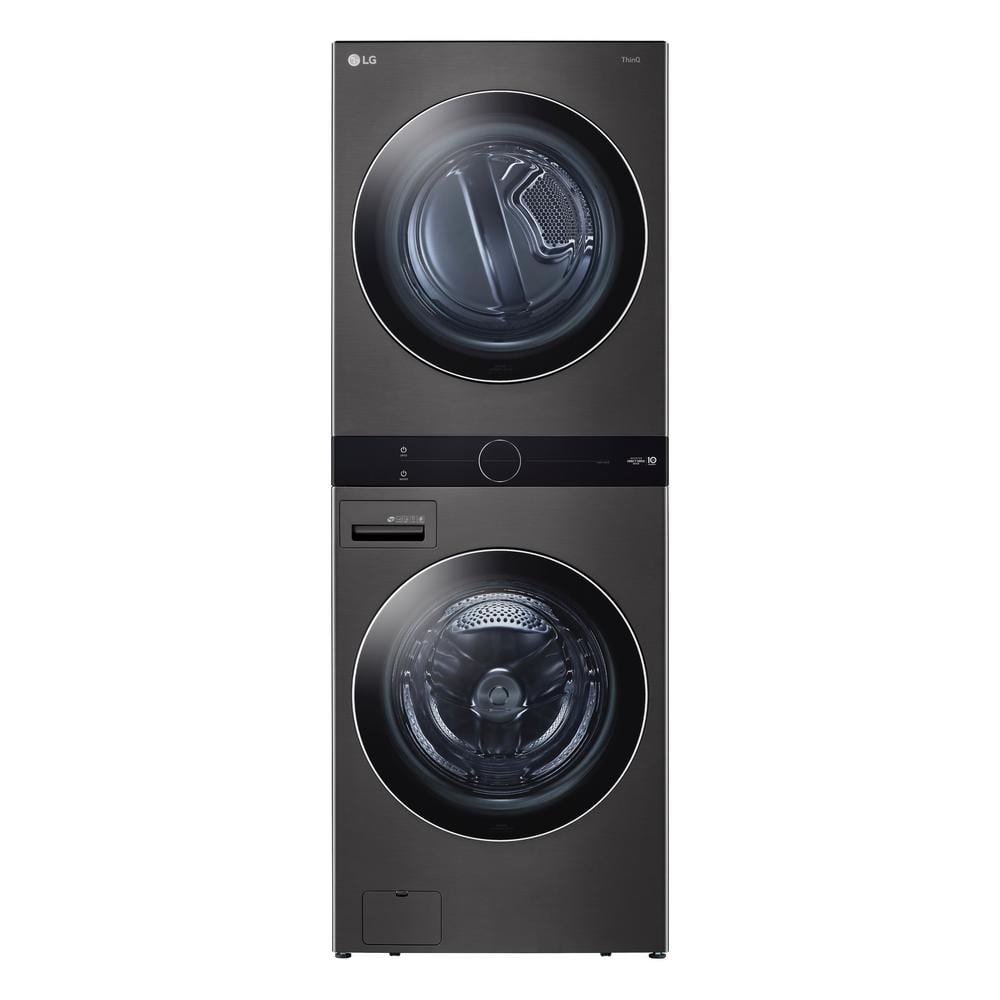
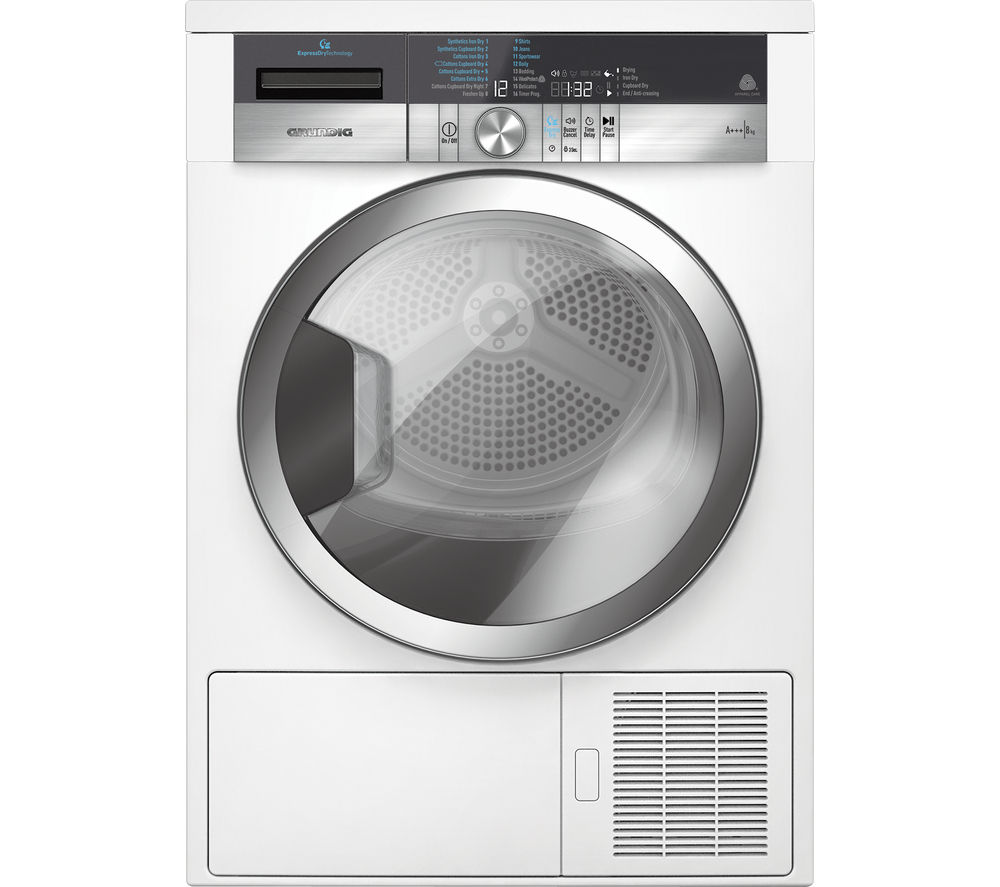
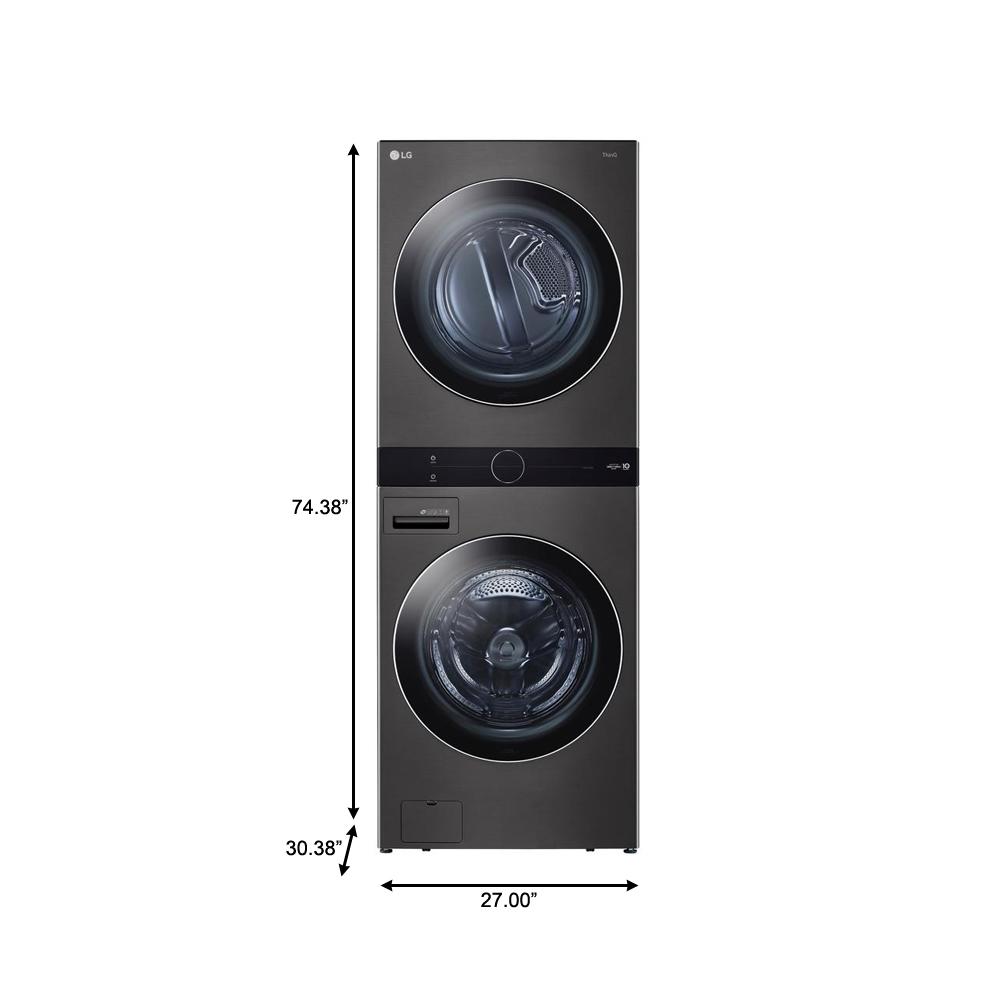
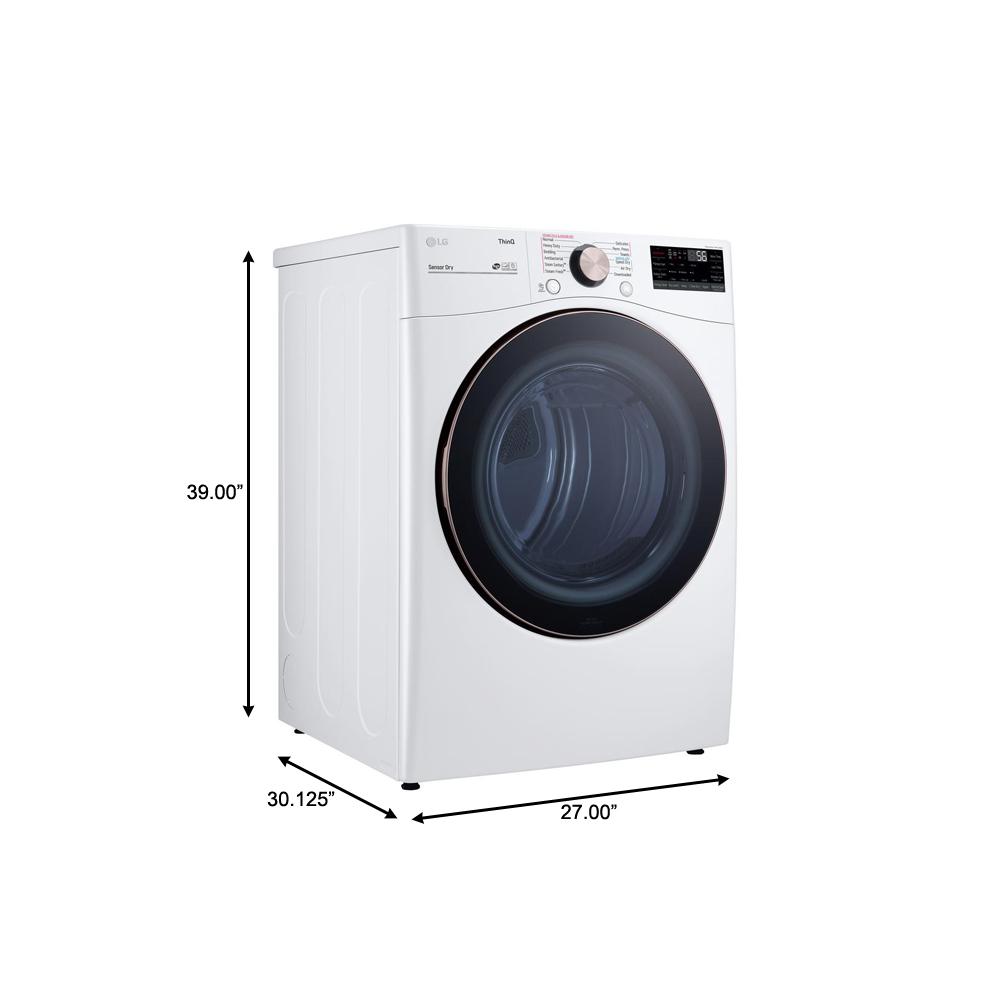
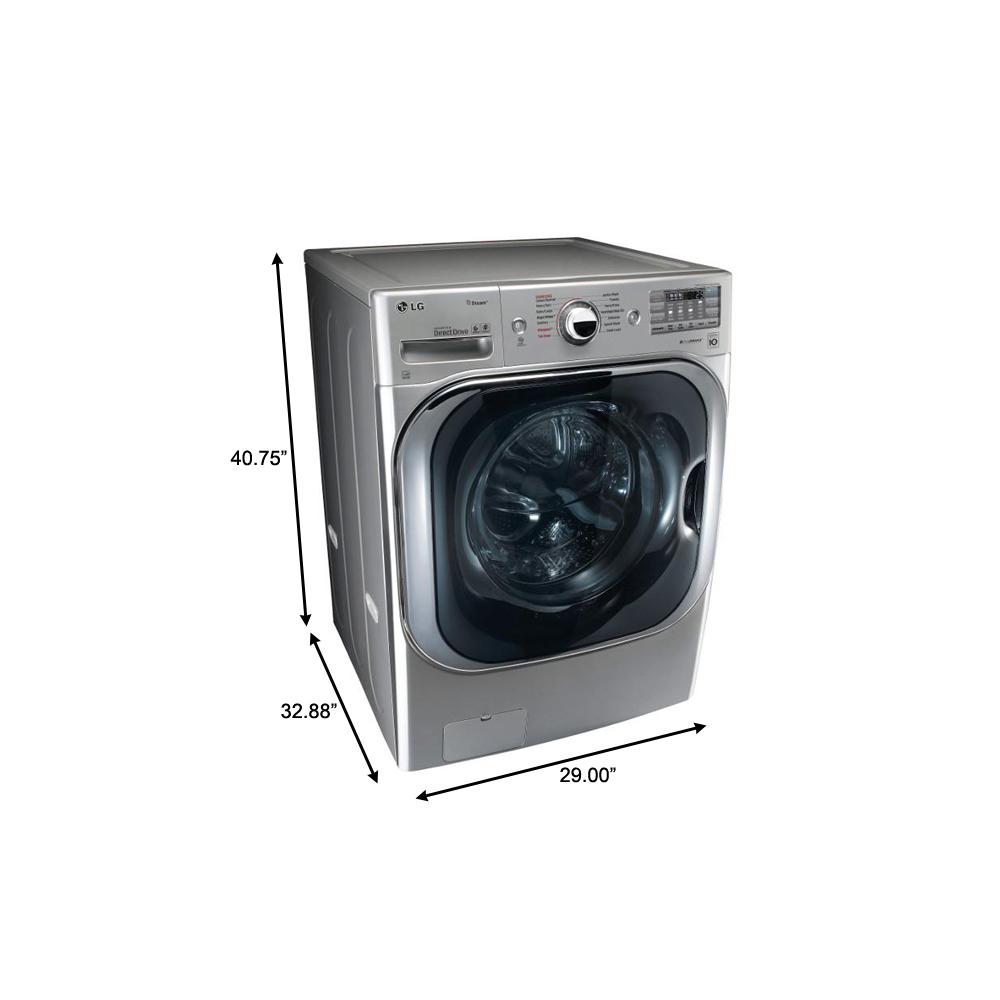
by Edward
Works very well, install was fairly easy. Really don’t understand why a wash tower would need 2 power cords and 3 water connections for the unit that’s built together? Bet the next model has this as a cost savings. Ability to see how much time is left on a wash or dry cycle on my phone. So far we’re happy,
by Jon
Excellent. But I am unable to get the Wi-Fi enabled to turn on. Without the WashTower being wi-fi connected, I am unable to use the ThinQ and control setting and timing remotely. Even after looking online, I cannot understand why this function is not turning on…unless this specific unit has a problem. Could someone from technical support be in touch with me?